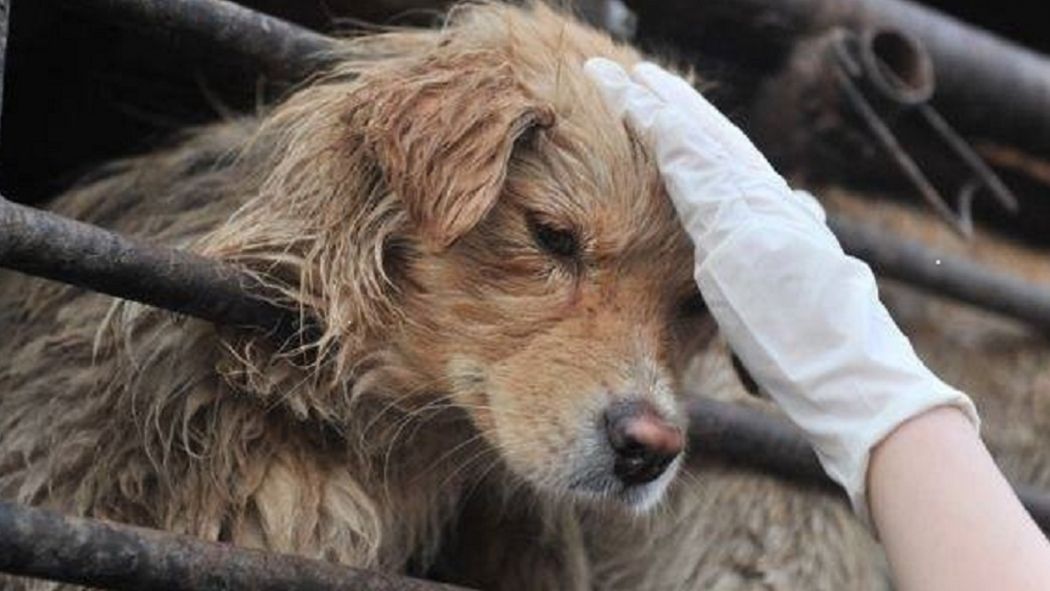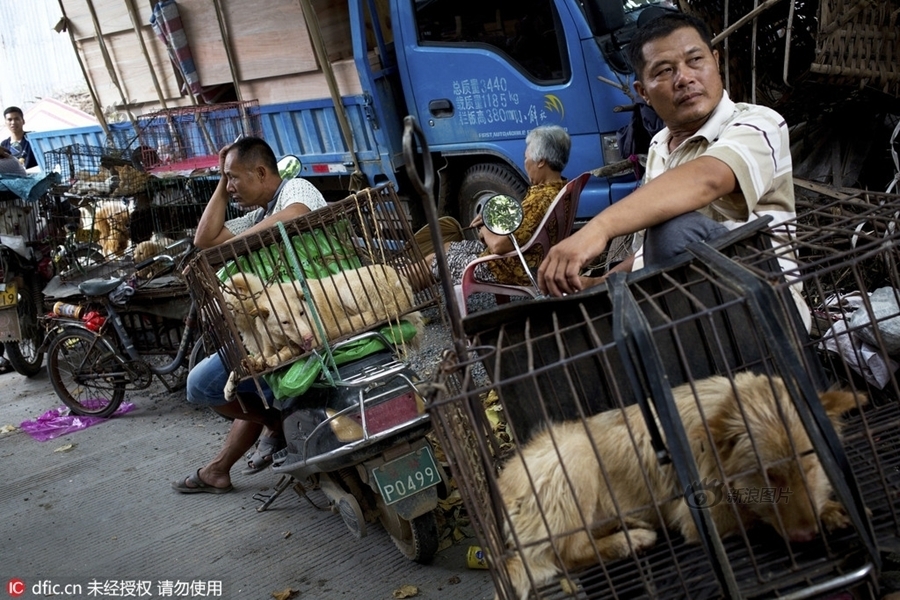By Samson Tang
The Yulin Dog Meat Festival which took place last month has met with a hostile reception worldwide. Opinions on the festival, usually, bifurcate into two patterns. Whilst most people level fierce criticism at the festival by arguing that dogs are human companions, some fervently uphold the “tradition” in the name of cultural practice. Here, apart from discussing the festival, I will also shed some ink on the inconsistencies in our attitudes to and thinking of animals, hoping to provide the readers with a different perspective on animal-related issues.

Let me be very clear first. I was shocked and sickened, as many have also been, by the heart-wrenching fact that as many as 10,000 dogs were killed in the festival just because of some people’s insatiable appetite. Recently, a headline in HKFP arrested my attention: “Dog meat eating: Check your own cultural bias before protesting too much.” After reading it in detail, I was troubled by the fact that the author, by seeking recourse from anthropological studies and the concept of cultural relativism, argues that to condemn Yulin people for eating dogs is to deprive them of their tradition and social identities. As someone who holds a degree in anthropology, I instantly raised my eyebrows. I think the author’s contention is a perilous one that may make us turn a blind eye to the violence against animals.
Different societies have different cultures. This is true about the reason why dogs are kept as much as it is true about the way dogs are treated. In many highly urbanised countries, dogs are treated as family members and are given names, as are humans, whereas in many tribal societies dogs are kept only to serve utilitarian purposes like home protection and hunting. The Kiambu folks living in Kenya, for example, keep dogs just to scare off strangers and predator animals. Their language does not even contain a term equivalent to “pet,” a category found in many languages spoken by us today. If the cultural and social significance of dogs varies across different cultures, some questions remain─ to what extent eating dogs is a cultural practice, and to what extent it is just a lucrative yet dirty business under the guise of tradition?

Dog meat consumption is found not only in Yulin, Guanxi of course, but also in countries like New Zealand and Switzerland. Yet that said, the former is readily distinguishable from the latter in terms of law enforcement and the brutality involved in the preparation of dog meat. In Switzerland, dogs can be killed for personal consumption, but selling dog meat and slaughtering dogs for commercial use are prohibited. In New Zealand, dog meat is also consumed, though not that common. But we have happily seen how New Zealand has actively sought to promote positive public perception of the well-being of animals in recent years. Its Animal Welfare Amendment Bill was passed last year, and it states that animals are “sentient beings” like us. In this way, those who bring cruelty to animals would be justly prosecuted. It is conceivable that the legislation introduced not only prevents people from bringing cruelty to animals, but by changing the country’s attitude towards animals it also endeavours to establish emotional bonding between humans and non-human animals.

In China, however, horrendous episodes of animal cruelty are not few and far between. To use the Yulin Dog Meat Festival again as an illustration, we have found that what remains outrageous is not just the number of dogs killed, but the way they are captured, treated and killed. Amongst the dogs killed, many still had collars fastened to their necks, which means there is a strong possibility that they were stolen pet dogs. China does have rules and regulations on meat production. That is, sick and deceased animals cannot be made into meat products or served to customers. As can be expected, those food safety regulations are scarcely adhered to by vendors and restaurateurs.
Crammed into tiny cages in which they can hardly move during transportation, most of the dogs─ oftentimes with no food or water given─ are hungry, spent, or more poignantly, dead, when they arrive in Yulin. But they are still served to customers as “delicacies.” Before being slaughtered and cooked, the dogs would sometimes be beaten most brutally by the vendors. This is because when the dog is beaten, the supply of adrenalin─ a chemical produced when we are afraid or in pain─ will give its meat a bitter taste for which some customers have a peculiar penchant. For the consumption of a particular kind of animals to be called a cultural practice, it has to at least contribute to the social formation of a community. As documented by anthropologist George Wenzel, the Inuit, a group of peoples residing in Arctic regions, used to consume seal meat and share it within the communities. Such communal sharing has been a tradition of the Inuit culture.
If dog meat consumption in Yulin is such a glorious tradition and cultural practice, then why were the vendors so eager to try emotional blackmail to rip off the volunteers and animal activists who wanted to rescue the caged dogs? These episodes have led to a conclusion: The Yulin Dog Meat Festival is not so much a cultural practice as a bloody business that thrives on the exploitation of dogs.

It would be my remiss if I stop right here without casting light on the differential treatment of dogs and other animals. Those who strongly oppose dog meat consumption are those who usually consume animal products made of other animals at the same time. I opine that no one in his right sense will believe a dog is more sentient than and intrinsically superior to a cow, a pig, or a bird. So, are we just hypocrites? I do not think so. But how do we account for the inconsistencies inherent in our seemingly consistent attitudes to animals?
In our everyday lives, we use tons of linguistic illusions to shield ourselves from feeling a twinge of conscience at the animals being butchered in abattoirs tens of thousands of miles away from our neighbourhoods. We have replaced calves with veal, cows with beef, pigs with pork, lambs with mutton, deers with venison et cetera so that we are convinced by ourselves that what lie on our dining tables are just some pieces of meat rather than animals that were once as lively as we now are.

But dogs are “special”; they are not wild animals. When dogs are kept by many of us as companion animals, they are given names, a human or a quasi-human status, and are admitted into our social world. They are inseparable companions offering us unconditional love and unflagging support, despite many of our human frailties. They are family members whose deaths we would grieve for a long time. This explains why there has been an international backlash against the Yulin Dog Meat Festival, for what was once a “them” has already become an “us.” It behooves us therefore to rescue “our own kind.” In point of actual fact, this also explains our differential treatment of different kinds of animals. Animals that are emotionally close to us often secure extensive media coverage when at risk. Those that are not that close, on the other hand, would easily be consigned to oblivion.
I do not attempt to hide my elation of seeing more and more people fight for the rights of dogs. The blatant fact, nevertheless, is that there are still scads of cases of animal cruelty lurking in places that are out of sight and thus out of mind. Though having been a vegetarian for some years, I am acutely aware that it is well-nigh impossible for us to treat all animals equally all of a sudden, just as we cannot expect the Eskimos to weed out fish, whales and caribou from their diets and then replace them with carrots and tofu from tomorrow onwards. But what if we all started to go one step further, to extend our helping hands also to animals we have perhaps cared less? Would this not be a groundbreaking step to forge closer relationships with other non-human animals?
Samson holds a degree in anthropology. Currently a postgraduate student, he specialises in Human-Animal Studies (HAS).
